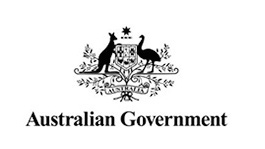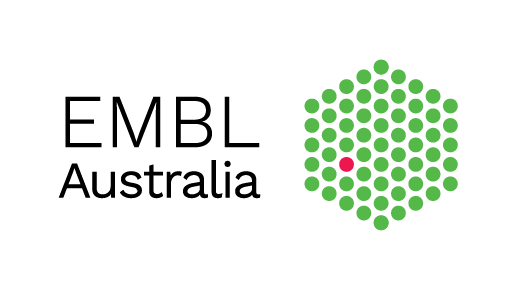Molecular Machines People
Group Leader
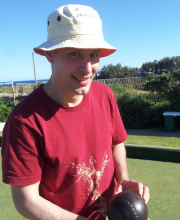 |
Till Böcking+61 2 9385 1179 Till studied biochemistry at the University of Bonn in Germany before moving to Sydney for his PhD studies in biophysics followed by a short post-doc in chemistry. In 2006 he joined the group of Tomas Kirchhausen at Harvard Medical School in Boston to apply his background in the physical sciences to study endocytosis. Till was lured back to Sydney in 2011 where is now setting up the Molecular Machines group at UNSW. |
Postdoctoral Fellows |
|
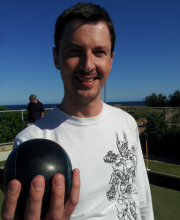 |
Dr Miro Jancom.janco unsw.edu.au Miro received his Bachelor’s degree in Environmental Ecology at the Faculty of Natural Sciences, University of Matej Bel, Slovakia. Shortly after moving to England he was awarded the Undergraduate certificate with Distinction in Biology at University of Kent followed by Master’s degree in Biochemistry, both at University of Kent. During his Master’s studies he was investigating the effect of CO2 on the quorum sensing regulated virulence determinants in an opportunistic human pathogen Pseudomonas aeruginosaPAO 1. Miro then joined the Geeves lab at the University of Kent where he completed his PhD in Biochemistry. His PhD studies were focused on the effect of skeletal α-tropomyosin carrying cardiomyopathy mutations on the regulation of cardiac muscle contraction. Here in the Boecking group at UNSW he is aiming to resolve the mechanism of tropomyosin assembly on actin filaments and the processes involved in the selection of various tropomyosin isoforms coating actin filaments using a single molecule microscopy combined with microfluidics. |
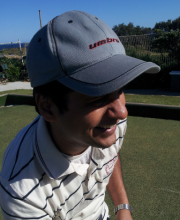 |
Dr Vaibhav Shah+61 2 9385 8639 Vaibhav obtained his Bachelors and Masters in Pharmacy from India. Thereafter, he completed his Ph.D. in Cell Biology/Signal Transduction at Ohio State University with a focus on understanding the cellular signaling pathways leading to activation of brain microglial cells. While studying cellular signaling in immune cells, he developed a keen interest in infectious diseases, and therefore joined Chris Aiken’s laboratory at Vanderbilt University to study mechanisms of HIV-1 uncoating. In 2013, he joined UNSW with an aim to understand molecular mechanisms and effects of host factors on HIV-1 uncoating using imaging techniques. |
|
|
James WalshJames completed a Bachelor of science in Physics/Mathematics at UNSW in 2009 before obtaining first class Honours in Biophysics in 2010. He completed his PhD in 2015 under the supervision of Paul Curmi where his work concentrated on the mechanisms of division plane positioning in Bacteria and Archae, focusing on “Turing Pattern-like” mechanisms to sense the geometry of the cell. In 2016, James joined the Molecular Machines group where he has been focusing on the studying the kinetics of pore formation by cytolytic proteins, as well as the development of image acquisition automation and analysis software. |
PhD Candidates |
|
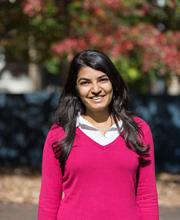 |
Ilina BarejaI received a Bachelor's degree in Biochemistry from the University of Delhi, India and then went on to pursue a master's degree in Biotechnology from the Indian Institute of Technology, Bombay, India. For my dissertation I worked to look at the effect of a novel centrosomal protein, FOR20, on microtubule assembly in vitro. My PhD project focuses on studying the interactions between actin and different tropomyosin isoforms using an in vitro reconstitution system, and to help elucidate how different isoforms may compete for this binding, as well as the effect of certain anti-cancer drugs on the actin filament assembly. |
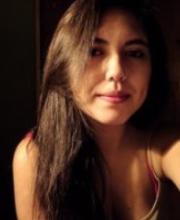 |
Chantal Marquez BadillaChantal received her Bachelor’s degree in Molecular Biotechnology Engineering at University of Chile. To obtain the professional degree she worked with Hantaviruses, specifically characterising the role of the transmembrane domain of the Gc fusion protein. After moving to Sydney she joined the Molecular Machines group for a short internship, were she stayed to do her PhD. Chantal’s project focuses on understanding the molecular mechanism of HIV uncoating, for which she is developing a new assay to detect capsid opening and to visualise the interaction of host cell factors with the viral core. |
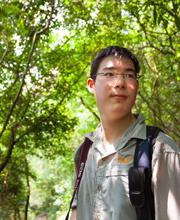 |
Derrick LauDerrick completed a combined Bachelors in Commerce and Science at University of New South Wales in 2014. He further pursued his passion for research into infectious diseases and molecular biology during his Honours project with Till Böcking. Derrick shown that it is possible to assemble fluorescently labelled capsid lattices for fluorescent microscopy to develop new tools for studying protein-capsid interactions that occur during the early phase of the viral life cycle. As time flew, this project transformed into a PhD project. Using self-assembled capsid lattices Derrick hopes to understand how HIV utilises various host cell factors to mask itself from detection in the host cell and to control capsid uncoating. |
 |
Jeffrey Stear |
Collaborators
Philip Nicovich
Physicist
University of New South Wales
http://www.bmif.unsw.edu.au/aboutus.htm
Paul Curmi
Physicist
University of New South Wales
https://research.unsw.edu.au/people/professor-paul-marie-gerard-curmi
Danny Hatters
University of Melbourne
http://www.biochemistry.unimelb.edu.au/research/res_hatters.html
Adelle Coster
Biomathematician
University of New South Wales
https://research.unsw.edu.au/people/dr-adelle-coster


